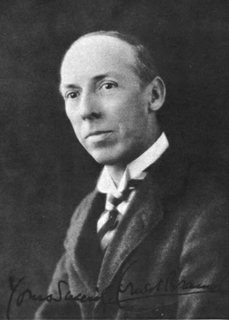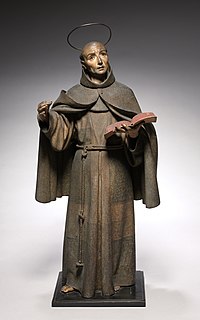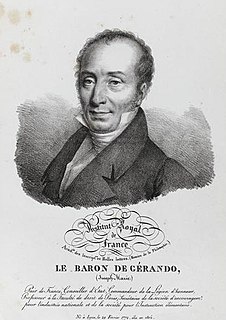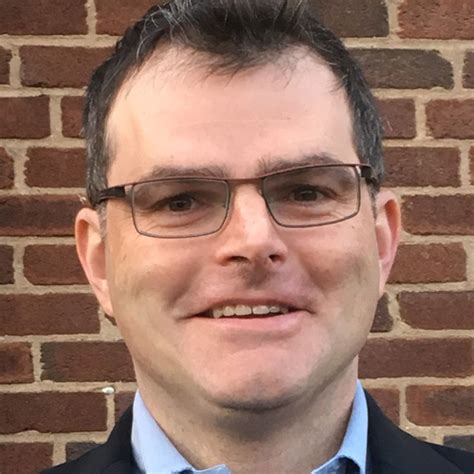A Quote by Ernest Bramah
When Ling was communicating to any person the signs by which messengers might find him, he was compelled to add, "the neighbourhood in which this contemptible person resides is that officially known as 'the mean quarter favoured by the lower class of those who murder by treachery'," and for this reason he was not always treated with the regard to which his attainments entitled him, or which he would have unquestionably received had he been able to describe himself as of "the partly-drained and uninfected area reserved to Mandarins and their friends.
Quote Topics
Related Quotes
What a man does, that he has. What has he to do with hope or fear? In himself is his might. Let him regard no good as solid but that which is in his nature, and which must grow out of him as long as he exists. The goods of fortune may come and go like summer leaves; let him scatter them on every wind as the momentary signs of his infinite productiveness.
I loved working with Malcolm [McDowell]. He's been such an important person in my life. I mean, not just as someone I was married to, which is huge, and the father of my children, which is even bigger, but also as a friend and an inspiration and somebody who probably helped to fuel something that all my reading as a child had already started, which was a love of England and the world of the theater over there, which I became involved with through him and probably because of him.
My conception of the audience is of a public each member of which is carrying about with him what he thinks is an anxiety, or a hope, or a preoccupation which is his alone and isolates him from mankind and in this respect at least the function of a play is to reveal him to himself so that he may touch others by virtue of the revelation of his mutuality with them. If only for this reason I regard the theater as a serious business, one that makes or should make man more human, which is to say, less alone.
Christ was treated as we deserve that we may be treated as He deserves. He was condemned for our sins, in which He had no share, that we might be justified by His righteousness, in which we had no share. He suffered the death which was ours, that we might receive the life which was His. 'By His stripes we are healed.
The retirement of Athanasius, which ended only with the life of Constantius, was spent, for the most part, in the society of the monks, who faithfully served him as guards, as secretaries, and as messengers; but the importance of maintaining a more intimate connection with the catholic party tempted him, whenever the diligence of the pursuit was abated, to emerge from the desert, to introduce himself into Alexandria, and to trust his person to the discretion of his friends and adherents.
It makes him contemptible to be considered fickle, frivolous, effeminate, mean-spirited, irresolute, from all of which a prince should guard himself as from a rock; and he should endeavour to show in his actions greatness, courage, gravity, and fortitude; and in his private dealings with his subjects let him show that his judgments are irrevocable, and maintain himself in such reputation that no one can hope either to deceive him or to get round him.
There is a time in every man's education when he arrives at the conviction that envy is ignorance; that imitation is suicide; that he must take himself for better, for worse, as his portion; that though the wide universe is full of good, no kernel of nourishing corn can come to him but through his toil bestowed on that plot of ground which is given to him to till. The power which resides in him is new in nature, and none but he knows what that is which he can do, nor does he know until he has tried.
There is a kind of grandeur and respect which the meanest and most insignificant part of mankind endeavor to procure in the little circle of their friends and acquaintance. The poorest mechanic, nay, the man who lives upon common alms, gets him his set of admirers, and delights in that superiority which he enjoys over those who are in some respects beneath him. This ambition, which is natural to the soul of man, might, methinks, receive a very happy turn; and, if it were rightly directed, contribute as much to a person's advantage, as it generally does to his uneasiness and disquiet.
When a man sees a dying animal, horror comes over him: that which he himself is, his essence, is obviously being annihilated before his eyes--is ceasing to be. But when the dying one is a person, and a beloved person, then, besides a sense of horror at the annihilation of life, there is a feeling of severance and a spiritual wound which, like a physical wound, sometimes kills and sometimes heals, but always hurts and fears any external, irritating touch.
No tongue is able to declare the greatness of the love that Jesus bears to every soul: and therefore this Spouse, when he would leave this earth, in order that his absence might not cause us to forget him, left us as a memorial this Blessed Sacrament, in which he himself remained; for he would not that there should be any other pledge to keep alive our remembrance of him than he himself.
One of man's important mistakes, one which must be remembered, is his illusion in regard to his I. Man such as we know him, the 'man-machine,' the man who cannot 'do,' and with whom and through whom everything 'happens,' cannot have a permanent and single I. His I changes as quickly as his thoughts, feelings and moods, and he makes a profound mistake in considering himself always one and the same person; in reality he is always a different person, not the one he was a moment ago.
I don't think I would have been a good architect. Really, I have thought about this from time to time, and I might have wound up like my father, who never did find that which he could devote his life to. He sort of drifted from job to job. He was a traveling salesman, he was a bookkeeper, he was an office manager, he was here, there, there. And however enthusiastic he was at the beginning, his job would bore him. If I hadn't had the writing, I think I might have replicated what he was doing, which would not have been good.
Philosophers have very justly remarked that the only solid instruction is that which the pupil brings from his own depths; that the true instruction is not that which transmits notions wholly formed, but that which renders him capable of forming for himself good opinions. That which they have said in regard to the intellectual faculties applies equally to the moral faculties. There is for the soul a spontaneous culture, on which depends all the real progress in perfection.
It is an irony of medical history that even as Freud's later work would make him the progenitor of modern psychodynamic psychotherapy, which is generally premised on the idea that mental illness arises from unconscious psychological conflicts, his papers on cocaine make him one of the fathers of biological psychiatry, which is governed by the notion that mental distress is partly caused by a physical or chemical malfunction that can be treated with drugs.




































